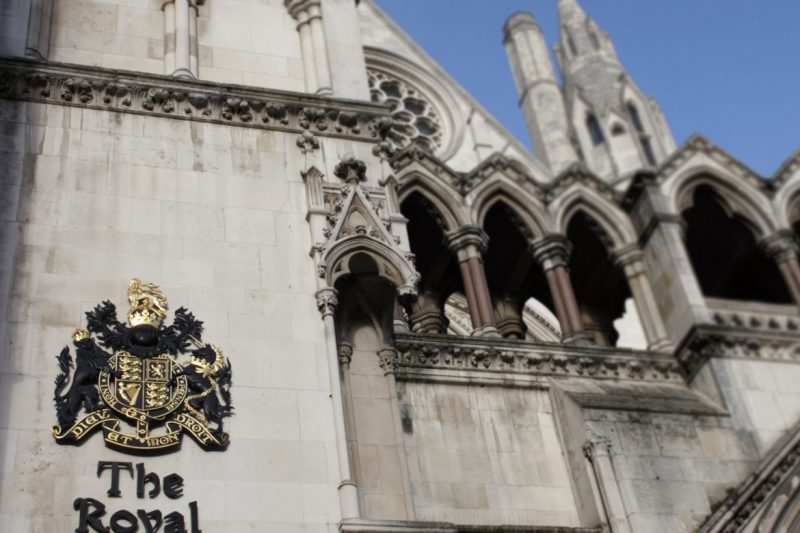NEC3 Contract – Project Manager reversing his decision: Can a Second Adjudicator consider the First Adjudicator’s Decision – High Court (TCC) Guidance
“…It is only too easy in a complex case for a party who is dissatisfied with the decision of an adjudicator to comb through the adjudicator’s reasons and identify points upon which to present a challenge under the labels “excess of jurisdiction” or “breach of natural justice”…” (As per the Court of Appeal judgment in Carillion Construction Ltd v Devonport Royal Dockyard Ltd [2005] EWCA Civ 1358, paragraph 86)
The Technology and Construction Court in the enforcement of an Adjudicator’s decision found that in the circumstances, there was not a breach of the rules of natural justice when the Second Adjudicator considered and took into account the First Adjudicator’s Decision which was unfavourable to one of the parties in relation to amongst other things, the Project Manager’s decision to reverse a Compensation Event which had been implemented under the Contract: Arcadis UK Ltd v May and Baker Ltd (t/a Sanofi) [2013] EWHC 87 (TCC).
The key issue between the parties in the enforcement proceedings can be summarised as follows from the Defendant’s acknowledgement of service which stated amongst other things that:
“The adjudicator made an error in his jurisdiction and/or breached the rules of natural justice. The adjudicator treated an earlier decision as binding and did not allow the defendant to address fully this issue.”
Arcadis UK Ltd (“the Claimant”) was employed as a Contractor by May and Baker Ltd (t/a Sanofi) (“the Defendant”) to carry out remediation works on-site. The contract between the parties incorporated the NEC3 Engineering and Construction Contract June 2005 (with June 2006 amendments) (“the Contract”), dated 16 March 2011. The total tender price was £4.5 million. The works had to be completed within 42 weeks subject to any extension of time, with an intended commencement date of 28 February 2011.
Pursuant to the Contract, Clause 61.1 provided that the Project Manager should notify the Contractor of Compensation Events and alternatively the Contractor is to notify the Project Manager of what it believed was a Compensation Event. Clause 62 of the Contract provided for the Claimant to submit quotations when instructed by the Defendant identifying the price or likely costs occasioned by the Compensation Event. Clause 62 of the Contract also allowed the Project Manager to instruct the Claimant to submit a revised quotation, the Project Manager to accept the Claimant’s quotation, the Project Manager to make his own assessment of the consequential effects of the Compensation Event or for the Project Manager to decline to proceed with the instruction for which a quotation was sought, i.e. that a proposed instruction would not be given or that a proposed changed decision would not be made. Clause 64 of the Contract provided for the assessment of a Compensation Event by the Project Manager.
It is important to set out in some detail the background to this matter. There came a point when it was apparent that some work would be required beyond the northern and southern boundaries of the site on land belonging to the Defendant. The Project Manager obtained a quotation or quotations from the Claimant for the work to the Northern Boundary. The Project Manager issued the Claimant a series of Project Manager’s Instructions (PMI Numbers 26, 33, 34 and 44 in September and October 2011) for the work to be carried out at the Northern Boundary. It appears that it was originally accepted by the Project Manager that the work to the Northern Boundary amounted to a Compensation Event under the Contract and as such, the Project Manager made his own financial assessment of what the work was worth and indeed certified over £300,000 for such work.
The Claimant encountered similar ground conditions in relation to the Southern Boundary Work and issued an ‘Early Warning’ that the contaminated ground extended beyond that boundary. The Project Manager sought alternative quotations from the Claimant. The Claimant provided a quotation in sum of £456,111.24 and indicated that it would require an extension of time of 16 days.
The Project Manager on 5 December 2011 issued PMI 51 which instructed the Claimant to proceed with the work, albeit assessing the amount due as £326,877.41. The Project Manager’s assessment excluded any costs associated with prolongation.
The Claimant then submitted a revised quotation in the sum of £541,898.10 indicating that an extension of time of 29 days was required. However, this was rejected by the Project Manager.
For reasons which were not clear to the Court, on 27 January 2012, the Project Manager purported to withdraw Project Manager’s Instruction 51 in respect of the Southern Boundary work and also PMI’s 33, 34 and 44 in respect of the Northern Boundary work.
On or about October 2012, the Project Manager adjusted the payment certification by removing what had been allowed for the Northern Boundary work carried out by the Claimant. No adjustments were made in respect of the Southern Boundary work completed by the Claimant as the Project Manager had never certified any amounts in respect of that work. The Southern Boundary work was carried out by the Claimant on or about March or April 2012. As a consequence of the Project Manager’s actions with regard to the Claimant’s financial entitlement for the work carried out to the Northern and Southern Boundary, disputes arose between the parties.
The Claimant served its Notice of Adjudication (Adjudication No. 1) in relation to entitlement to payment for the work carried out to the Northern Boundary. The Claimant asked the First Adjudicator amongst other things to resolve:
“Issue 1 – Is the Project Manager entitled to reverse his decision that a matter constituted a compensation event and/or his assessment of the effects of a compensation event? Issue 2 – If it is decided that the Project Manager is entitled to withdraw acceptance of a compensation event, do the works to the Northern Boundary in fact constitute a compensation event? Issue 3 — If it is found that the Project Manager is entitled to withdraw acceptance of a compensation event nor [sic] his assessment thereof or that, if he can withdraw it, the works to the Northern Boundaries still form a valid compensation event, then we will ask the Adjudicator to decide the assessment of the resultant change to the Prices and changing the Completion Date that the Project Manager should have accepted and/or assessed.”
The First Adjudicator’s decision found in favour of the Claimant and declared amongst other things that:
1) The Northern Boundary work which was situated to the north of the Northern boundary of the area defined in the Works Information constituted a Compensation Event under the Contract.
2) The appropriate compensation ought to have been a change in the contract Prices of £412,060.78 and an extension of the Completion Date by 12 working days which would take the Completion Date to 18 January 2012.
3) The Project Manager’s certification of a deduction of £10,725 for delay damages as at 7 February 2012 was incorrect.
4) Due to the amount already certified for the Northern Boundary work, the outstanding amount for the Northern Boundary Compensation Event was £98,111.54 in addition to interest.
5) With regard to Issue 1, the First Adjudicator stated at Paragraph 6.02 of his decision that: “…prior to the implementation of the compensation event, the Project Manager may reverse his decision that the matter constituted a compensation event. However, after the compensation event has been implemented, as defined in the Contract, the Project Manager may neither reverse his decision that the matter is a compensation event, nor reassess the effects of the compensation event.”
It appears the decision of the First Adjudicator was complied with by the Defendant.
The Claimant, on 23 October 2012, served a second Notice of Adjudication (Adjudication No. 2) in relation to the Southern Boundary Work. The issues in the Notice were identical to those raised with respect to the First Adjudication, albeit this time in connection with the Southern Boundary Work. The Claimant sought declarations that:
“(a) the Project Manager’s assessment “should have been a change in the Prices of £541,898.10 and delay in the Completion Date of 16 days or such other sum or period as the Adjudicator may decide…
(b) “the deduction for delay damages should be £Nil” and (c) Sanofi was to pay the sum of £533,769.63 or such other sum as the Adjudicator decides, plus interest…”.
The Claimant’s invited the adjudicator nominating body to appoint the same Adjudicator in Adjudication No. 1 for Adjudication No. 2, on the basis that his “nomination would save the Parties both costs and time as he is already familiar with the contract and reading-in time would be minimised”. The Defendant’s solicitors objected on the grounds that the First Adjudicator’s fees were excessive, he had exceeded his jurisdiction and they did not agree to his appointment. The adjudicator nominating body appointed another Adjudicator for Adjudication No. 2.
The Claimant’s Referral Notice in the second Adjudication included opinions from Leading Counsel and a copy of the First Adjudicator’s decision in respect of the first Adjudication, together with a historical background to the matter, an analysis as to how the Contract was intended to work in relation to Compensation Events, a detailed chronology of events, an explanation as to why the Project Manager was incorrect in withdrawing his implementation of a Compensation Event and sought a declaration that the Project Manager was not “entitled to withdraw his acceptance of a Compensation Event nor his assessment of a Compensation Event once an assessment had taken place…”.
The relevant paragraph from the second Adjudication stated amongst other things that: “There has already been an adjudication in respect of the additional works at the north of the site on a similar factual basis. The Adjudicator in that referral has decided that the Project Manager was not entitled to reverse his assessment of the compensation event after it had been implemented…That Decision has not been put aside by the courts and is therefore binding on the Parties. As the same principles apply to this Issue in this referral we consider that the Adjudicator is bound by that previous decision (see Section 23(2) of the Scheme for Construction Contracts) and should therefore decide that the project manager is not entitled to withdraw a compensation event once it has been implemented. Should the Adjudicator not feel bound by the previous decision, which we consider would be incorrect, we request the Adjudicator to adopt the compelling arguments of ….in this issue.”
The Defendant’s sought to argue amongst other things that on the merits and the evidence, the Southern Boundary work was not a Compensation Event; that there were no binding, operative or contractually compliant quotations or assessments pursuant to the Compensation Event provisions of the Contract. With regard to quantum and delay, the Defendant suggested that the Adjudicator may need to make his own assessment of the change in the Prices and to the Completion Date caused by the Southern Boundary Work. The Defendant argued that the Claimant had not proved by way of cause and effect or otherwise how this work caused a delay and indeed pointed in some detail to assertions that the Claimant was in a period of significant culpable delay. The Defendant further argued that the First Adjudicator’s decision had no relevance and was not binding on the Second Adjudicator save with regard to the extension of time of 12 days.
The Claimant’s submissions in response included that that the delay caused by the Southern Boundary Work was to be assessed in accordance with Clause 63.3 by reference to “the length of time that… planned Completion is later than planned Completion as shown on the Accepted Programme”; essentially it argued that this work was or would be critical and that one could properly determine the allowable extension of time by reference to a programming exercise. With regard to the financial compensation, it submitted that what was required was the determination of a proper forecast cost judged at the time when the contractor was instructed to provide a quotation.
On 25 November 2012, the Second Adjudicator issued his decision which stated amongst other things that:
“145.1 The Project Manager is neither entitled to reverse its decision that the matter constitutes a compensation event nor entitled to reverse his assessment of the effect of a compensation event; 145.2 The additional works to the Southern Area…does constitute a compensation event under the Contract; 145.3 The Project Manager’s assessment of the compensation event should have been a change in the Prices of £480,231.44 plus VAT and delay to the Completion Date of 29 days; 145.4 The Referring Party is due the sum of £15,324.81 in respect of interest; 145.5 There shall be no deductions made for delay damages…”
The Second Adjudicator, in reaching his decision, took into consideration the First Adjudicator’s decision which was submitted with the Claimant’s Referral Notice in the second Adjudication. The Second Adjudicator in relation to the First Adjudicator’s decision stated amongst other things that:
“36. Whilst the Referring Party considers that I am bound by the previous adjudicator’s decision, it suggests I should adopt the previous adjudicator’s reasoning should I not feel bound by its decision.
37. The Responding Party contends that I am not bound by the previous adjudication on the basis that the Scheme for Construction Contracts does not bind and adjudicator in a successive adjudication to the reasoning or analysis employed by an earlier adjudicator.
38. I am bound by a previous adjudicator’s decision and whilst I am not empowered to decide my own jurisdiction, I do have a duty to consider the matters raised regarding whether, and to what extent, I should be bound by the previous adjudication.
39. I note that the previous adjudicator predicated his decision to the extent that the compensation event in that particular case had been implemented. 40. I take the view that if I find that the Southern Boundary Works had been properly implemented under the Contract as a compensation event, then I am bound by the previous adjudicator’s decision that [the] Project Manager was not entitled to withdraw his acceptance of that compensation event. I will also be bound by the decision that the Project Manager could not reverse his assessment of that event. However, the previous adjudicator’s decision would not prevent me from making my own assessment of the effect of the Southern Boundary Works.”
The Second Adjudicator in relation to the second Adjudication, decided amongst other things that:
1) The Project Manager was “neither entitled to reverse his decision that a matter constituted a compensation event nor entitled to reverse his assessment of the effects of a compensation event”.
2) The Southern Boundary work constituted a Compensation Event.
3) The Compensation Event had not been properly implemented in accordance with the Contract.
4) The Second Adjudicator was in agreement with the First Adjudicator’s decision with regard to: “with the previous adjudicator’s decision that the only assumptions that the Project Manager may legitimately make in respect of a compensation event are those that relates to the effect that compensation event [has] a bearing on the forecast of Defined Cost and the forecast of the delay to the Completion Date”.
5) The Southern Boundary Work Compensation Event was not properly assessed in accordance with the Contract. 6) The Second Adjudicator had considered the effect which the Southern Boundary work Compensation Event had on the Completion Date finding that its effect should be “to extend the Completion Dated by 29 days”. 7) The Second Adjudicator found that the effect of the Compensation Event should be to increase the Prices by £480,231.44 [(£541,799.79 + £418,663.09)/2]”.
The Defendant failed to comply with the Second Adjudicator’s decision.
As stated at the outset, the key issue in these enforcement proceedings in the High Court between the parties can be summarised by an extract from the Defendant’s acknowledgement of service which stated amongst other things that:
“The adjudicator made an error in his jurisdiction and/or breached the rules of natural justice. The adjudicator treated an earlier decision as binding and did not allow the defendant to address fully this issue.”
In summary, the Court concluded that in these circumstances, that there was no breach of the rules of natural justice due to the Second Adjudicator considering the First Adjudicator’s decision and accordingly the Second Adjudicator’s decision was enforced. The Court stated amongst other things that:
“…The first issue for consideration is whether there was anything improper or contrary to the rules of natural justice either in the decision in the First Adjudication being put before the Second Adjudicator or in the Second Adjudicator having regard to that earlier decision. I have no hesitation in saying that it was neither improper nor contrary to the rules of natural justice. Arcadis had succeeded in the First Adjudication in relation to very similar issues both in fact and in law. Although there were some distinctions (principally the fact that the Northern Boundary work had been implemented before the Project Manager withdrew his acceptance or endorsement that it comprised a Compensation Event, whereas that withdrawal occurred before the Southern Boundary work was done), the First Adjudicator’s findings on what the contract meant were at the very least germane and could well be thought at the very least to be persuasive. It was not, obviously or at all, improper or even necessarily misguided for Arcadis to consider that it was or might be binding or to wish to put it before the Second Adjudicator. It is not uncommonly the case in court proceedings that one side’s advocate will seek to put before the judge an earlier previous court decision between the same parties to argue either that it is binding or gives rise to an issue estoppel or that it is at the very least persuasive. No-one could conceivably complain that the judge could not at the very least look at the previous decision or that the judge finds it, if not binding, persuasive. It must be a rare case in which either party to an adjudication can not refer a previous adjudicator’s decision between the same parties and on the same contract to a later adjudicator on the basis that the earlier decision either is binding or at the very least is persuasive. There might well be circumstances in which it would be positively wrong for a party not to refer the later adjudicator to a decision of an earlier adjudicator; the reason is that arguably the later adjudicator may be bound by the earlier decision and as a consequence may have no jurisdiction to decide the same dispute as has already been resolved in the earlier adjudication. Adjudicators must be trusted, generally at least, to be able to reach honest and intelligible views as to the extent to which such earlier decisions are relevant or helpful or not… It was not improper or wrong for Arcadis to put before the Second Adjudicator the First Adjudicator’s decision. It will be a rare case in which the adjudicator’s jurisdiction or conduct can be challenged in later enforcement proceedings because he or she looked at and considered any material put forward by either party…”.
The above is for general information only and to encourage discussion and does not constitute legal advice. The author does not assume any responsibility for the accuracy of any statements made and appropriate legal advice should be taken and relied upon before taking or omitting to take any action in respect of any specific matter.
For further information with regard to the above or NEC3 contract matters, please do not hesitate to contact chambers on: charles.edwards@newtemplechambers.com to see how chambers can assist you or your organisation.
Charles Edwin Edwards MSt(Cantab) MSc(Lond) FCInstCES Barrister
NEW TEMPLE CHAMBERS
2nd Floor Berkeley Square House
Berkeley Square
Mayfair
London W1J 6BD
Tel: +44(0)207 887 6098





